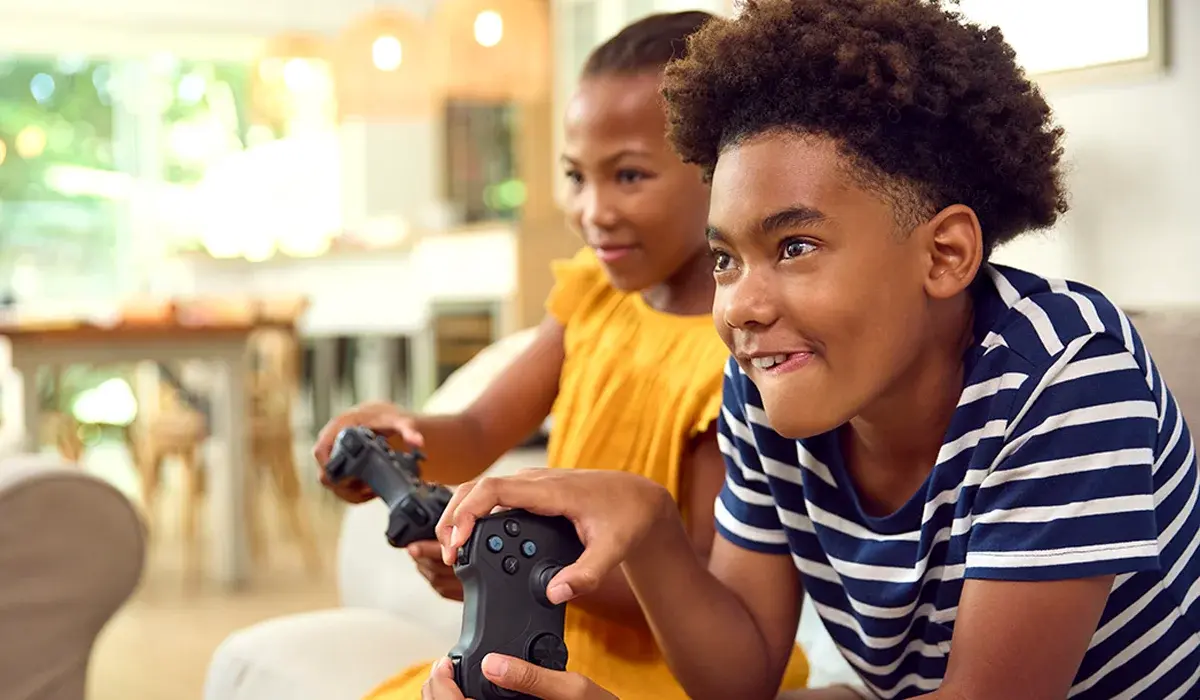Studies
New Study Shows Parents Worry Less About Kids and Video Games

Parental Views Are Shifting: How Video Games Are Redefining Success
Video games have long raised parental concerns. But today, more parents are starting to see the benefits of gaming and esports.
Thanks to growing acceptance, many are now exploring the positive sides of gaming. This shift redefines what success and learning look like for kids.
Survey Shows New Trends in Parental Attitudes
A recent survey by Prodigy Education studied 1,000 American parents. Results showed dramatic shifts in their views on gaming careers.
Surprisingly, some parents have invested up to $3,000 in their child’s gaming dreams. The average spend remains around $1,000.
Even more impressive, Parental Concerns Video Games now include hopes—not just fears. Some parents now see gaming as a path forward.
In fact, 2 in 5 parents believe esports offer more fulfilling careers than traditional jobs like teaching or lawyering.
Additionally, 1 in 3 parents think gaming could help their child win a scholarship to college.
Half of those surveyed say gaming improves their child’s mental health and social development. These results are encouraging.
The Benefits Parents Are Starting to Notice
Parents now report enhanced decision-making, problem-solving, and strategic thinking in kids who game regularly. Communication skills are improving, too.
These benefits often outweigh earlier Parental Concerns Video Games raised—like screen time or isolation. The transformation of opinion continues to spread.
As a result, more parents feel comfortable supporting their children’s passion for esports and gaming-based learning.
The rise in college scholarships and high-paying esports careers also encourages this shift in perception. The field keeps growing.
Kids as young as 11 have earned real income from gaming. Meanwhile, elite players make millions competing in popular games.
Experts Explain the Growing Appeal of Gaming Careers
Joshua Prieur, EdD, from Prodigy Education, explains that outdated gamer stereotypes no longer apply in today’s dynamic digital world.
“Gaming fosters a growth mindset and encourages persistence without fear of failure,” says Dr. Prieur. It challenges players constantly.
He also notes that careers extend far beyond becoming a professional esports player. Developers, analysts, and marketers play huge roles.
Even content creators, streamers, and coaches are vital to the evolving gaming ecosystem. It’s a wide-open field with promise.
Still, Dr. Prieur admits that gaming isn’t for everyone. Like traditional sports, success requires passion, balance, and discipline.
Mental Health and Social Growth Get Noticed
Psychiatrists and esports educators echo these findings. Bubba Gaeddert, head of events at College of Esports, welcomes this change.
“Gaming is no longer just fun,” says Gaeddert. “Parents now see college and career potential in digital competition.”
Dr. Michael Kane, a psychiatrist, sees this trend mirrored in clinical settings. Parents are embracing gaming as an educational tool.
Gaming teaches valuable cognitive skills—like decision-making, quick thinking, and collaboration. These benefits are finally getting widespread recognition.
Moreover, Hallie Zwibel, DO, of the Center for Esports Medicine, highlights the social boost games provide for shy or anxious children.
“Gaming lets kids build friendships through shared interests,” says Zwibel. “Especially when traditional sports feel intimidating or unwelcoming.”
Gaeddert also points out gaming’s inclusivity. “Unlike other sports, gaming welcomes everyone—regardless of physical limitations or background.”
The Ongoing Risks of Excessive Gaming
While the benefits are clear, experts agree parents should still maintain healthy boundaries and awareness of potential downsides.
Too much gaming leads to sedentary habits, poor sleep, and weakened focus. Kids need movement and routine to stay balanced.
Also, unregulated play may cause social withdrawal or interfere with other activities. Social health requires real-world interactions, too.
Safety remains a concern. Monitoring content and staying involved helps parents protect kids from online threats and gaming addiction.
Gaeddert recommends open conversations, using monitoring tools, and helping kids develop healthy gaming habits and tech-free time.
How Parents Can Create Healthy Gaming Habits
Experts agree that structure and open communication are vital when kids show interest in gaming as a hobby or career.
Dr. Prieur suggests setting limits on screen time and prioritizing schoolwork, physical activity, and offline social connections daily.
Kelsey Falter, CEO of MOTHER Games, emphasizes moderation. “Burnout and isolation are risks—just like with any over-focused sport,” she says.
Parents must understand the balance between passion and overexposure. A healthy routine protects children while nurturing their interests.
Importantly, parents do not need to understand every game. Simply supporting the interest shows trust and strengthens family connections.
Final Thoughts
The conversation around Parental Concerns Video Games continues to evolve. Parents now see value where there was once only hesitation.
As gaming continues to offer scholarships, career paths, and social connections, families adapt and grow with these new opportunities.
Parents no longer need to fear video games. With guidance and balance, gaming can support growth, learning, and future success.
Explore more parenting trends, education updates, and digital lifestyle news right here on this website. Stay informed today!












